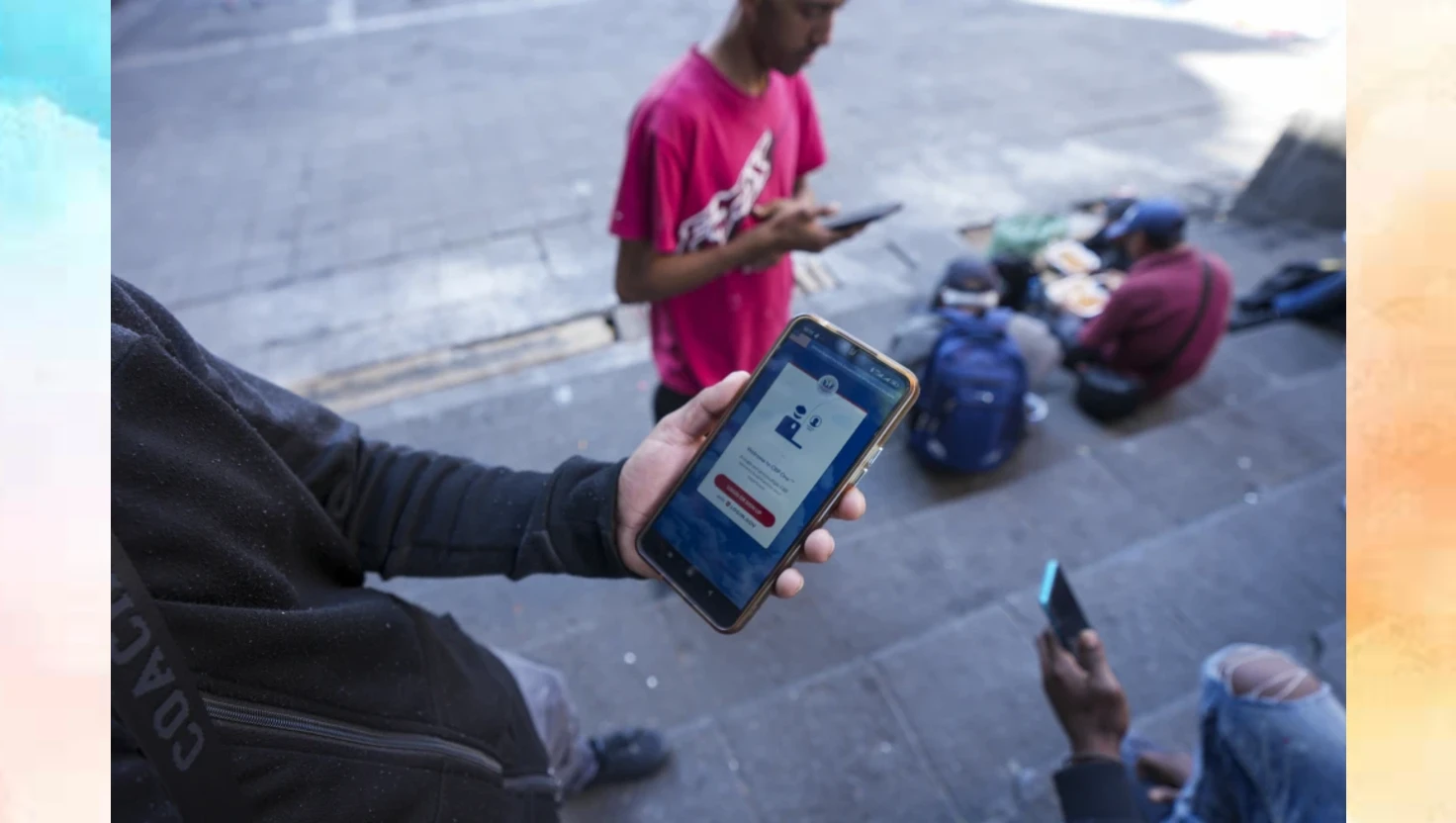US Seeks Collection of Social Media Handles on Immigration Forms

US Seeks Collection of Social Media Handles on Immigration Forms
US immigration authorities propose a wider collection of social media handles from benefit applicants, raising concerns over privacy, speech rights, and oversight.
US plans wider collection of social media data in immigration process
The United States government is seeking public feedback on a proposal to expand its collection of social media identifiers from individuals applying for immigration-related benefits, including asylum, permanent residency, and citizenship.
The proposed rule, introduced by the United States Citizenship and Immigration Services (USCIS), aims to bring social media data collection into line with an executive order on national security issued earlier this year. It would apply to millions of people already residing in the US, not only new visa applicants.
Civil rights advocates have warned that the initiative could set a precedent for increased government surveillance without adequate oversight, potentially threatening privacy and freedom of expression.
Policy follows executive order on security screening
The proposal stems from Executive Order 14161, titled “Protecting the United States from Foreign Terrorists and Other National Security and Public Safety Threats”, which requires US immigration authorities to implement uniform vetting standards. Under the order, USCIS would collect social media handles and associated platform names, though not passwords, from applicants across a broad range of forms.
According to USCIS, the goal is to improve identity verification, fraud detection, and national security screening.
“This data collection is necessary for rigorous vetting,” said a USCIS spokesperson, adding that it is intended to ensure that immigration applicants do not pose threats to public safety or promote extremist ideologies.
The proposed policy is currently open for public comment until 5 May 2025.
An expansion of long-standing monitoring practices
While the move reflects an administrative change, the practice of using social media in immigration screening is not new. According to the Brennan Center for Justice, social media monitoring began during the second term of former US President Barack Obama and expanded significantly under former President Donald Trump.
In 2017, the Department of State broadened social media screening to include nearly all foreign visa applicants—affecting roughly 15 million people annually.
However, the latest USCIS proposal would extend similar scrutiny to those already living legally in the US, such as green card holders, citizenship applicants, and asylum seekers, some of whom may have been vetted years earlier under different rules.
Privacy and legal concerns raised
Civil liberties groups have expressed deep concern over the proposed expansion.
Rachel Levinson-Waldman of New York University’s Brennan Center said that the government is increasingly using online activity to make “very high-stakes determinations” about individuals.
“There is fairly broad authority for the government to revoke a visa,” she explained, “but with very narrow exceptions, it cannot do so on the basis of speech protected by the First Amendment.”
She added that requiring extensive social media disclosures could lead to self-censorship or misjudgements based on unclear standards.
Leon Rodriguez, who directed USCIS between 2014 and 2017, acknowledged the use of artificial intelligence tools to process large volumes of online data but warned against over-reliance on such systems.
“AI might assist in the initial review,” he said, “but it lacks the judgment of trained security officers. Important context might be missed, and false positives are likely.”
Scale of proposed implementation
USCIS estimates that more than 3.6 million individuals would be affected by the new requirement each year. Application types include:
N-400 (naturalisation): over 900,000 applicants
I-131 (travel documents): approximately 1 million
I-485 (adjustment of status): more than 1 million
I-589 (asylum): over 200,000
I-751 (removal of conditions): 140,000
I-590, I-730, I-829 and other forms with smaller respondent volumes
Although the estimated per-person time burden is around five minutes, critics argue that tracking multiple accounts across different platforms—especially over many years—can be much more demanding in practice.
Potential for unintended consequences
The Brennan Center and other advocacy groups have warned that using social media to assess eligibility for immigration benefits could produce harmful outcomes, especially given the difficulties in interpreting humour, satire, and cultural context.
They also caution that minority groups may be disproportionately affected. Previous DHS programmes reportedly placed greater scrutiny on individuals from Muslim-majority countries.
Moreover, social media content can include a mix of public and private information, which may involve third parties, including US citizens who interact with applicants online. This raises broader civil liberties questions about the reach of government surveillance.
Context: balancing security with constitutional protections
While the US government argues that enhanced social media screening is necessary to counter security threats, critics believe it risks undermining trust in the immigration system.
The First Amendment of the US Constitution protects freedom of speech and expression, even for non-citizens. Legal experts have cautioned that collecting and analysing online speech—without clear guidance or review procedures—could violate these protections.
In addition, immigration applicants are not always notified when their social media data affects decisions, and they may have limited options to challenge errors or misinterpretations.
Next steps and public input
The Department of Homeland Security has invited public comment until 5 May 2025. Submissions must reference Docket ID USCIS-2025-0003 and be made through the regulations.gov portal.
As the debate continues, policymakers will face pressure to balance the demands of national security with the principles of transparency, fairness, and individual rights.
The final decision could influence how digital footprints are used in immigration assessments—and potentially set a model for other democratic societies grappling with the same question.
The United States government is seeking public feedback on a proposal to expand its collection of social media identifiers from individuals applying for immigration-related benefits, including asylum, permanent residency, and citizenship.
The proposed rule, introduced by the United States Citizenship and Immigration Services (USCIS), aims to bring social media data collection into line with an executive order on national security issued earlier this year. It would apply to millions of people already residing in the US, not only new visa applicants.
Civil rights advocates have warned that the initiative could set a precedent for increased government surveillance without adequate oversight, potentially threatening privacy and freedom of expression.
Policy follows executive order on security screening
The proposal stems from Executive Order 14161, titled “Protecting the United States from Foreign Terrorists and Other National Security and Public Safety Threats”, which requires US immigration authorities to implement uniform vetting standards. Under the order, USCIS would collect social media handles and associated platform names, though not passwords, from applicants across a broad range of forms.
According to USCIS, the goal is to improve identity verification, fraud detection, and national security screening.
“This data collection is necessary for rigorous vetting,” said a USCIS spokesperson, adding that it is intended to ensure that immigration applicants do not pose threats to public safety or promote extremist ideologies.
The proposed policy is currently open for public comment until 5 May 2025.
An expansion of long-standing monitoring practices
While the move reflects an administrative change, the practice of using social media in immigration screening is not new. According to the Brennan Center for Justice, social media monitoring began during the second term of former US President Barack Obama and expanded significantly under former President Donald Trump.
In 2017, the Department of State broadened social media screening to include nearly all foreign visa applicants—affecting roughly 15 million people annually.
However, the latest USCIS proposal would extend similar scrutiny to those already living legally in the US, such as green card holders, citizenship applicants, and asylum seekers, some of whom may have been vetted years earlier under different rules.
Privacy and legal concerns raised
Civil liberties groups have expressed deep concern over the proposed expansion.
Rachel Levinson-Waldman of New York University’s Brennan Center said that the government is increasingly using online activity to make “very high-stakes determinations” about individuals.
“There is fairly broad authority for the government to revoke a visa,” she explained, “but with very narrow exceptions, it cannot do so on the basis of speech protected by the First Amendment.”
She added that requiring extensive social media disclosures could lead to self-censorship or misjudgements based on unclear standards.
Leon Rodriguez, who directed USCIS between 2014 and 2017, acknowledged the use of artificial intelligence tools to process large volumes of online data but warned against over-reliance on such systems.
“AI might assist in the initial review,” he said, “but it lacks the judgment of trained security officers. Important context might be missed, and false positives are likely.”
Scale of proposed implementation
USCIS estimates that more than 3.6 million individuals would be affected by the new requirement each year. Application types include:
N-400 (naturalisation): over 900,000 applicants
I-131 (travel documents): approximately 1 million
I-485 (adjustment of status): more than 1 million
I-589 (asylum): over 200,000
I-751 (removal of conditions): 140,000
I-590, I-730, I-829 and other forms with smaller respondent volumes
Although the estimated per-person time burden is around five minutes, critics argue that tracking multiple accounts across different platforms—especially over many years—can be much more demanding in practice.
Potential for unintended consequences
The Brennan Center and other advocacy groups have warned that using social media to assess eligibility for immigration benefits could produce harmful outcomes, especially given the difficulties in interpreting humour, satire, and cultural context.
They also caution that minority groups may be disproportionately affected. Previous DHS programmes reportedly placed greater scrutiny on individuals from Muslim-majority countries.
Moreover, social media content can include a mix of public and private information, which may involve third parties, including US citizens who interact with applicants online. This raises broader civil liberties questions about the reach of government surveillance.
Context: balancing security with constitutional protections
While the US government argues that enhanced social media screening is necessary to counter security threats, critics believe it risks undermining trust in the immigration system.
The First Amendment of the US Constitution protects freedom of speech and expression, even for non-citizens. Legal experts have cautioned that collecting and analysing online speech—without clear guidance or review procedures—could violate these protections.
In addition, immigration applicants are not always notified when their social media data affects decisions, and they may have limited options to challenge errors or misinterpretations.
Next steps and public input
The Department of Homeland Security has invited public comment until 5 May 2025. Submissions must reference Docket ID USCIS-2025-0003 and be made through the regulations.gov portal.
As the debate continues, policymakers will face pressure to balance the demands of national security with the principles of transparency, fairness, and individual rights.
The final decision could influence how digital footprints are used in immigration assessments—and potentially set a model for other democratic societies grappling with the same question.

OpenAI bans Chinese accounts working for social media surveillance company
OpenAI bans China-linked accounts accused of using ChatGPT to monitor protests abroad and send reports to Chinese authorities.
| 2025-07-30




